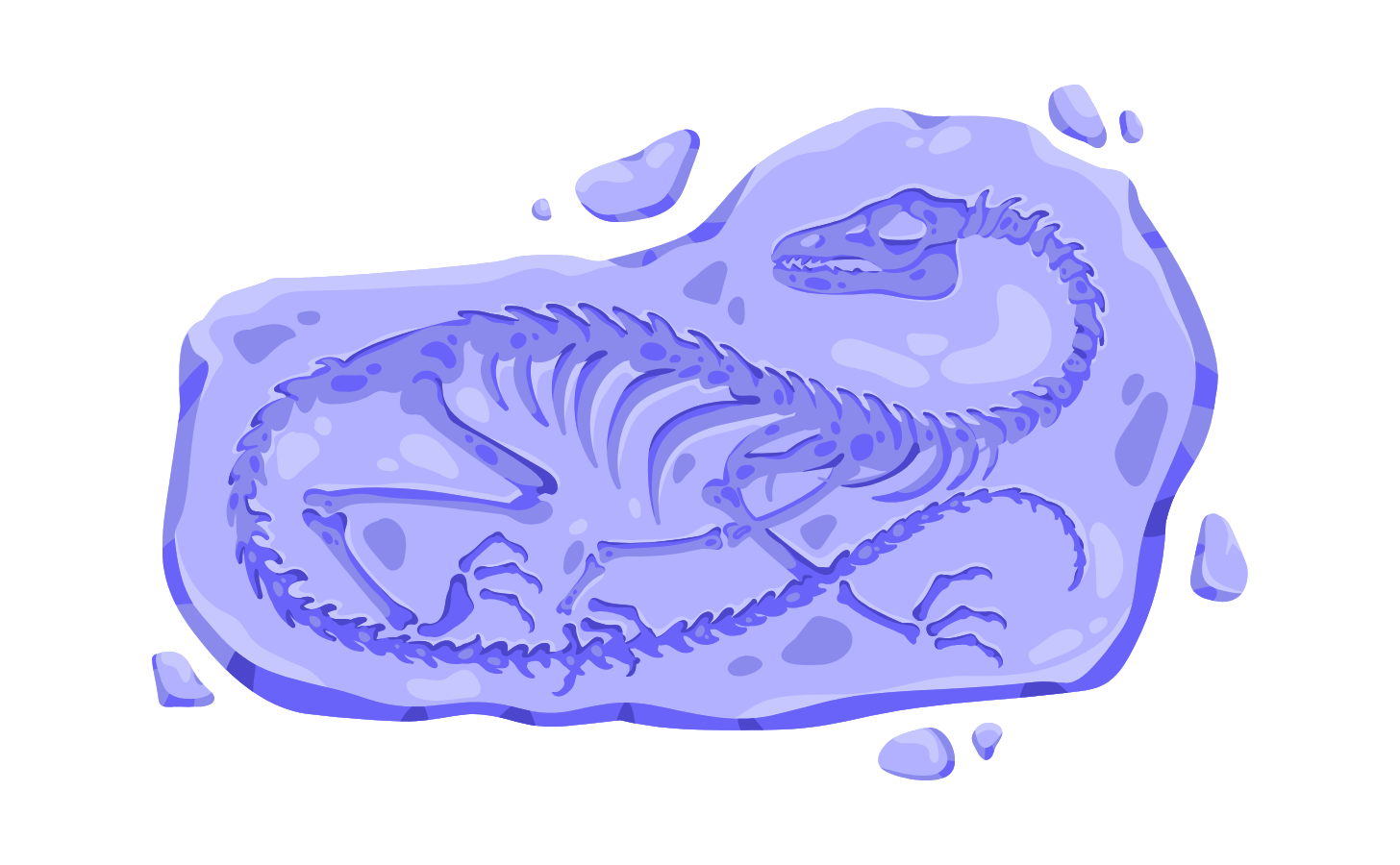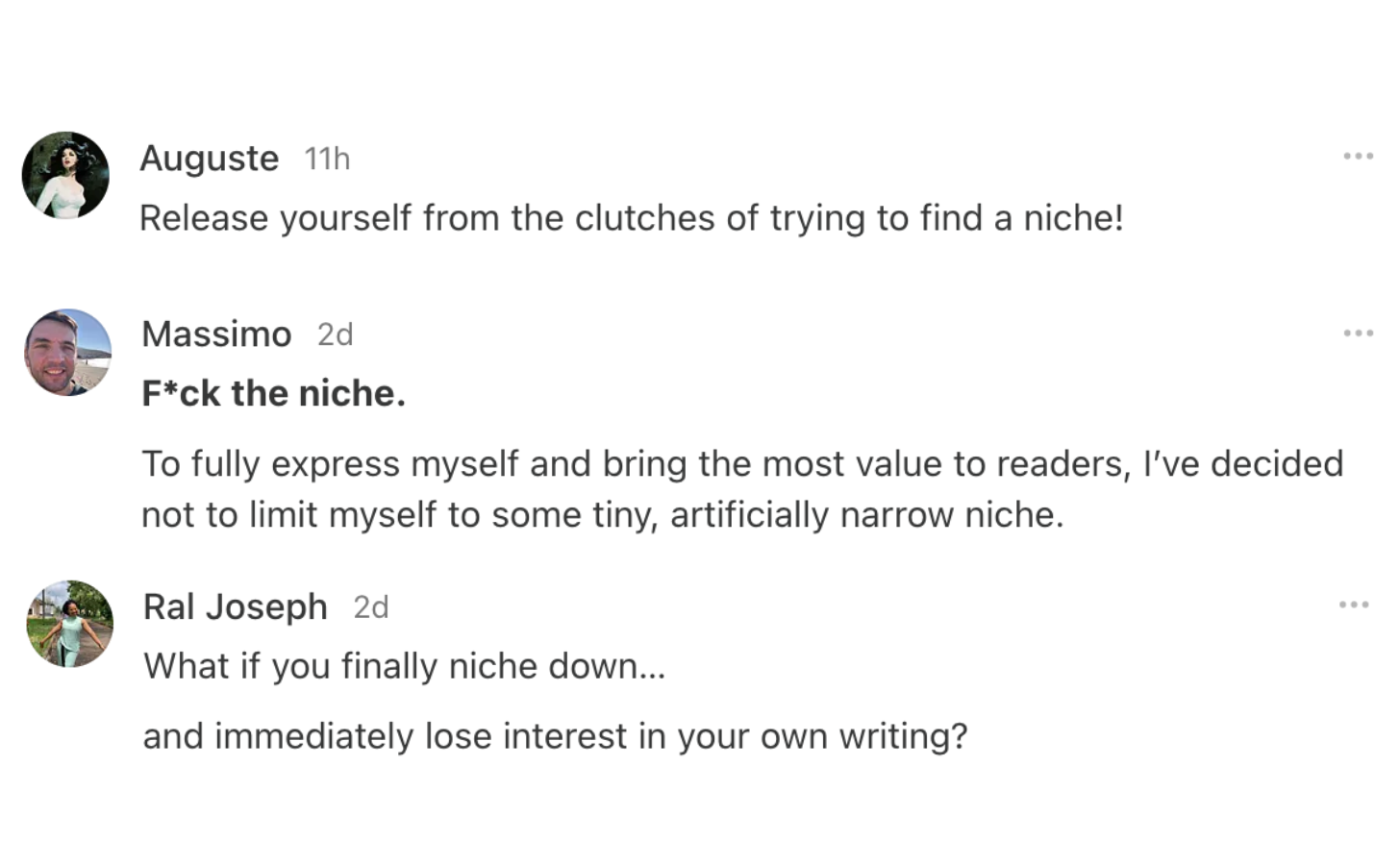Jack of all trades, master of none
Are you trying to do too much?
A few years ago, when I missed being a first responder1 so much that I applied to become a crisis response volunteer with the Phoenix Fire Department, I asked a professor at my alma mater to write me a letter of recommendation. What she came up with was incredibly kind, but letters of recommendation are hardly trustworthy if they only offer a glowing review of the person they’re about, so to offset her positive feedback, my former professor threw in a harmless piece of constructive criticism—the kind you’re supposed to offer about yourself when a job interviewer asks you about your biggest weakness.
Adrianna sometimes bites off more than she can chew, she wrote.
It’s been six years, and those words are still true.
I’ve always been a fan of dabbling. My guest room closet is crammed full of art supplies specific to different activities that I’ve picked up for a month or two at a time: air dry clay, crochet, acrylic paints, beads. I get high off of setting boisterous goals. I’m your best friend’s lame-ass boyfriend who always seems to be announcing a new business venture.
But actually sustaining these efforts is much harder than starting them. It’s not for a lack of interest—I genuinely think daisy bead bracelets are cute and that I could have been great at running my own copywriting agency, the website for which I officially cancelled on Squarespace this week—and I’m perfectly fine with being bad at something until I learn how to do it properly. It’s just that juggling multiple dissonant responsibilities is, well…hard.
Part of the problem is time. There are only so many hours in the day, no matter how many household tasks you’re able to pawn off on your partner or outsource via paid work. It’s also hard to switch from one mental or emotional state to the next; many of us need some sort of transition state in between, making it challenging to juggle our professional lives, family duties, romantic partnerships, social lives, health, creative work, hobbies, and proper sleep without something slipping from our grasp.
The issue of limited time and energy is so thoroughly discussed that it almost feels mundane to refer to here. But there’s more to “balancing everything” (as my friends and I seem to put it ad nauseum) than just these two elements. Over the last handful of months, I’ve recognized that something seems to be missing from most of these conversations: deep knowledge.
That’s what I find missing from a life of dabbling.
Last month, I visited the lovely Auzin Ahmadi in Seattle. She took me to the Burke Museum, where visitors have the privilege of seeing how archaeologists, paleontologists, zoologists, and geologists work behind the scenes. Many of the museum’s internal walls are made of glass, allowing a peek at these researchers’ workspaces, where expensive science equipment gleams and whiteboards explain ongoing projects.
As we shuffled from exhibit to exhibit and wall to wall, a mix of melancholy and envy settled over me.
“Wouldn’t it be so nice to be an expert in something?” I asked Auzin, adding that I hoped I was a scientist in a parallel universe. “Like, you know everything there is to know about one specific thing.”
I haven’t fully escaped that feeling since. In fact, it grew when I finally listened to a Rehash episode recommended to me by a friend, in which a fairly accomplished poet was asked to weigh in on the everlasting Rupi Kaur debate. I wanted—still want—to know what it feels like to be asked to weigh in, to have so much deep knowledge of a subject that you’re considered somewhat of an expert.
But I can’t. Part of the problem is that I’m 29 years old, and pretending I’m an expert on anything other than myself would probably be ridiculous. Most of the problem is that the path I’m on (or the way-too-many paths, one might say) probably won’t lead me to the type of extensive wisdom I craved as I roamed the museum with Auzin. I’m simply doing too many things.
Since joining Substack in October 2023, I’ve seen dozens (if not hundreds) of users post Notes railing against the idea of “niching down.” According to these posts, every creative has two options: choose a niche and stick to it, or flit from topic to topic (or genre to genre) at will. For writers, picking a niche might mean building a newsletter or list of clips that focuses entirely on pop culture; for a filmmaker, this could mean producing only horror films.
Those who oppose the concept of niching down are often worried about feeling boxed in. What if pondering pop culture week after week leaves them feeling numb? What if they decide a decade from now that horror bores them? If they want to start writing about the wellness industry or pivot to documentary filmmaking, will they be barred from doing so, either by their own expectations or others’?
These are valid concerns. It’s intimidating to imagine that you might one day be so afraid of disrupting your own status quo that you don’t explore new things. There’s also a solid argument to be made for branching out for the sake of it, like testing outfits in a fitting room or “experimenting” during college. Trying new things is often a necessary part of finding ourselves.
But what happens when you spend so long engaging with things at surface level that you simply lack the time, energy, or resources to go deeper? You miss out on wisdom—deep-seated knowledge that could potentially lead to more satisfying or meaningful engagement, make it easier to “lock in,” or open the door to more intimate relationships with others within that niche.
I don’t wish I were a scientist in this universe because I like what I do now: writing. By spreading myself too thin, though—by trying on a too few many hats, professionally and creatively—I’ve prevented myself from building the know-how that would make my work easier. Not only has this potentially held me back from scoring cool career opportunities, but it’s produced an underlying frustration: the sense that, despite all of my hard work, I’m not really progressing.
This isn’t uncommon. Writing is a tough gig, especially when someone’s starting out, and those who want to get paid for it can’t always be choosy at first. For a while, it was a matter of simply taking whatever work I could get.
But now, having tried out a hefty handful of niches, I’m ready to settle down. It’s harder than I ever would have expected to juggle even the intermediate level of expertise necessary to write confidently about several disparate concepts. How am I supposed to maintain an intimate enough relationship with every niche to know what’s happening within them at any given moment? How do I familiarize myself with each niche’s background and refer back to it on a moment’s notice? Who and what are my go-to resources in every niche? And most importantly, how do I convince readers that what I have to say is important if I’m barely engaged with the topic at hand myself?
I can’t change how many hours there are in a day. The only realistic path forward is to narrow my focus to a level that makes deep engagement possible, pleasant, and sustainable. Does that mean ditching curiosity and writing about one thing forever and ever? Of course not. Does it mean prioritizing the pursuit of wisdom over the often-fleeting desire to hop from one niche to the next? Sometimes, yeah.2
I never actually became a crisis response volunteer for the fire department, by the way. I stopped attending training three sessions in.
What’s been inspiring me lately:
✰ Phoenix’s first real monsoon season in a few years. When it’s sunny 300+ days per year, cloudy and stormy days start to feel extra special—and I don’t think a quick snort of post-rain desert air has ever failed to energize someone.
✰ Mesquite pods. The way their tough little seeds take root in hard, dry ground and produce ultra-heat-tolerant baby trees reminds me of one of many reasons I love the desert: it’s so resilient. I currently have a handful of mesquite volunteers in my tiny yard; a couple are over two feet tall!
✰ Elif Batuman’s The Idiot. Though I didn’t love this novel’s characterization and pacing, the style and sense of humor were perfection. Batuman makes me want to embrace my dry humor more.
✰ A cool interview I did with a roboticist during my final week at SFGATE. Some of the inspirations and work she shared with me had me cooking up a short story idea real quick!
I was a 9-1-1 operator in a past life. It was simultaneously the stupidest, most meaningful, and (dare I say) funnest job I’ve ever had.
“The pursuit of wisdom” is probably one of the most annoying phrases I’ve penned in a while. Should I change my profile picture to a Roman marble bust?







Sometimes we are experts at things that we don’t realize are valuable, but other people need our knowledge. My examples are :cooking from scratch, sewing, and mending. All can be considered survival skills that will be increasingly important in the coming collapse. They are also skills that many do not have. I recently hosted a mending workshop and 9 people attended, most of whom were in their twenties. They learned new skills (one had never threaded a needle before) and were proud of what they accomplished. Don’t sell your skills short no matter how mundane they seem to you.
I really loved this piece. Also: I went to high school in Phoenix (Xavier) and am happy to hear there’s rain.